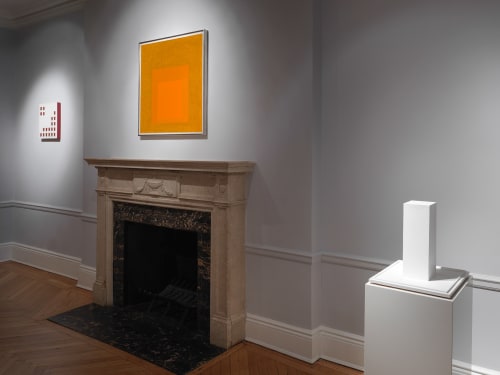Curated by Spanish-born, now New York-based writer and scholar Joan Robledo-Palop (also the founder of Zeit Contemporary Art), “Minimal Means: Concrete Inventions in the US, Brazil and Spain” shows thirty works by seventeen artists. In this outstanding show, on view at 111 E 70 St, we come across well-known luminaries such as Josef and Anni Albers, Lygia Clark, and Hélio Oiticica. The exhibition ties together works made primarily in the 1950s and ‘60s, when influences such as the Bauhaus and Constructivism gathered in different places to reassert their vision of geometric abstraction. The show, which occurs on two floors of the gallery space, consists of mostly small works of art, but the ambition of the pieces belies their size. The kind of vision holding this show together is historically aware but somehow devoted to the present moment, but must be seen historically as well. The artworks, which are of very high accomplishment, indicate to what extent a language of this sort might be developed, as well as the inherent internationalism of its reasoning. Regional geographical differences don’t really appear in these nonobjective works, but connections between individuals living and working far apart from each other were achieved–for example, the influence of Josef Albers in Brazil, has been documented in the exhibition, and can be seen in works from that country.
Minimal Means: Concrete Inventions in the US, Brazil and Spain. Curated by Joan Robledo-Palop
JONATHAN GOODMAN, Arte Fuse, March 8, 2019
Sign up to our mailing list
Monday to Friday: 10 am to 5 pm;
by appointment.
contact@zeitcontemporaryart.com
+1 (212) 401-0063
Instagram, opens in a new tab.
Facebook, opens in a new tab.
Youtube, opens in a new tab.
LinkedIn, opens in a new tab.
Artsy, opens in a new tab.
Artnet, opens in a new tab.
Vimeo, opens in a new tab.
©2025 Zeit Contemporary Art





